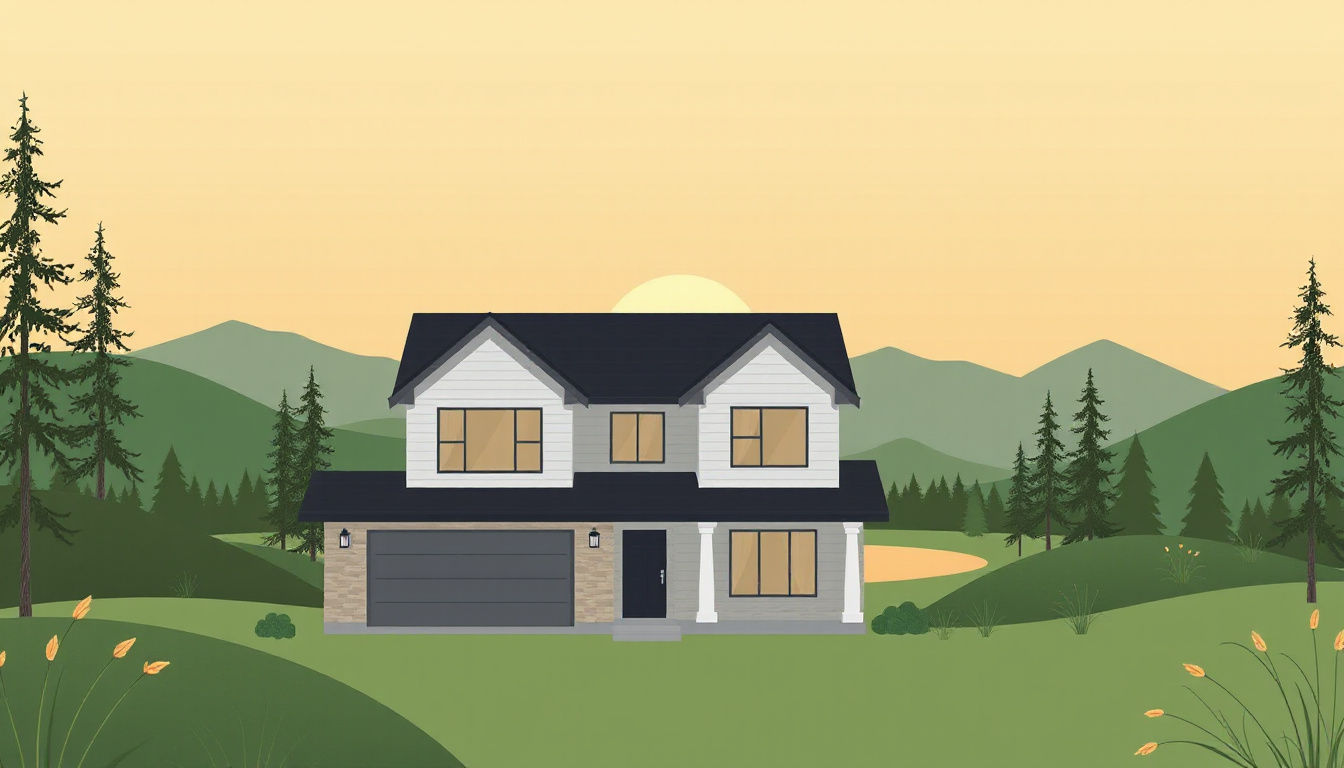When it comes to securing a home in Canada, one of the most pivotal decisions you will face is choosing the right mortgage term. With various options available, understanding what’s the best mortgage term in Canada for your specific financial situation is essential. This guide aims to demystify mortgage terms and provide you with the knowledge necessary to make informed financing choices. We will delve into the types of mortgage terms available, the critical factors to consider when making your choice, and a balanced look at the pros and cons of short-term versus long-term mortgages. By the end, you will be equipped with the insights needed to navigate the mortgage landscape confidently.

Key Takeaways
- Understanding different mortgage terms helps you make informed financing decisions.
- Key factors like interest rates and personal financial goals affect your mortgage term choice.
- Short-term mortgages offer lower interest rates but higher monthly payments, while long-term mortgages provide payment stability.
- Weighing the pros and cons of each mortgage type is critical for optimal financing.
- Always consider how your future plans may influence your mortgage term selection.
Understanding Mortgage Terms: Types and Their Implications
When considering home loans, one of the most pivotal decisions you’ll make is selecting the right mortgage term. Understanding the various types of mortgage terms available in Canada is crucial to find out what’s the best mortgage term for your needs. Generally, mortgage terms range from short-term (less than 5 years) to long-term (up to 10 years or more). Shorter terms typically come with lower interest rates but require a more frequent renewal, exposing you to market fluctuations sooner. On the other hand, longer terms provide stability, locking in your interest rate for an extended period, which can be beneficial in a rising interest rate environment. Furthermore, each type of term has its own implications on monthly payments and overall repayment costs. By evaluating your financial situation, including your ability to handle potential changes in interest rates, and considering how long you plan to stay in your home, you can determine what’s the best mortgage term in Canada for your circumstances.
Factors to Consider When Choosing a Mortgage Term
When considering what’s the best mortgage term in Canada, several important factors should guide your decision. First, assess your current financial situation, including your income stability and future earnings potential. A shorter mortgage term, such as a 5-year fixed rate, often comes with higher monthly payments but can save you money on interest over time, allowing you to pay off your mortgage sooner. Conversely, a longer term, like a 25 or 30-year mortgage, lowers monthly payments, making homeownership more affordable in the short term, but can lead to significantly higher interest costs over the life of the loan. Consider your long-term housing plans; if you anticipate moving within a few years, a shorter term with lower interest rates may be advantageous. Additionally, evaluate the prevailing interest rates and market conditions, as these can impact the overall cost of your mortgage. Finally, do not overlook the flexibility associated with prepayment options which can provide opportunities to pay off your mortgage faster without incurring penalties. Taking the time to weigh these factors will help you identify the mortgage term that aligns best with your financial goals.
‘The best way to predict the future is to create it.’ – Peter Drucker

Comparing Short-term vs Long-term Mortgages: Pros and Cons
When searching for a mortgage, Canadians often grapple with the question, ‘What’s the best mortgage term in Canada?’ A critical factor in this decision is understanding the differences between short-term and long-term mortgages. Short-term mortgages typically span 1 to 5 years, offering lower interest rates and the opportunity to capitalize on fluctuating interest rates if the market shifts. They allow homeowners to pay off their mortgage quicker, which can reduce the total interest paid over time. However, they also come with the risk of having to secure new financing after a few years, potentially at a higher rate, which could lead to financial strain. On the other hand, long-term mortgages, usually ranging from 10 to 30 years, provide stability with fixed payments that can be easier to budget and plan for in the long haul. While they may have higher interest rates than short-term loans, the extended repayment period can make monthly payments more manageable. Ultimately, the choice between short-term and long-term mortgages should align with personal financial goals, risk tolerance, and the prevailing interest rate environment.
